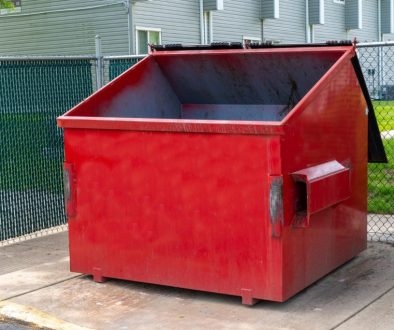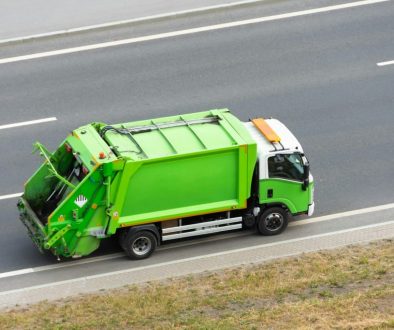Schools are bustling environments filled with various activities and resources. Hazardous waste can sometimes lurk, hidden in plain sight in science labs, cleaning closets, and even tech rooms. Recognising and adequately managing this waste is crucial to protecting students and staff and maintaining a safe learning atmosphere.
By adhering to safety practices and regulatory guidelines, schools can safely manage hazardous waste, ensuring a clean and healthy environment for everyone. Proper disposal and recycling solutions further support schools’ mission to safeguard the community and the planet.
Identifying Hazardous Waste in Schools
Schools often house various types of hazardous waste, which need careful identification and management to ensure the safety of students and staff. Recognising these materials is crucial to prevent accidents and health risks within educational environments.
Common types of hazardous waste found in schools include:
1. Lab Chemicals
Science labs store many chemicals that can be hazardous, such as acids, bases, flammable solvents, and reactive agents. These substances require strict handling and specific storage conditions.
2. Cleaning Agents
Many cleaning supplies contain toxic or corrosive chemicals. Bleaches, disinfectants, and detergents can pose significant risks if mishandled.
3. Electronics and E-waste
Old computers, monitors, and other electronic devices contain toxic materials like lead and mercury. Safe disposal is necessary to prevent environmental contamination.
4. Paints and Art Supplies
Many art materials contain harmful compounds, including paints, solvents, and adhesives. It’s essential to read labels and follow usage instructions properly.
Understanding these types of hazardous waste and recognising their dangers can help schools maintain a safe environment. Staff must be trained to identify and label potentially dangerous materials appropriately. By doing so, schools can protect humans and the environment from harmful exposure.
Safe Handling Practices and Guidelines
Proper handling practices and guidelines are vital to prevent accidents involving hazardous waste in schools. Adhering to these measures ensures safety and encourages responsible waste management.
Proper Storage Measures:
– Store chemicals in designated areas with appropriate ventilation.
– Use containment trays to catch spills or leaks.
– Keep incompatible substances apart to avoid reactions.
Essential Safety Equipment:
– Provide personal protective equipment (PPE) like gloves, goggles, and lab coats to anyone handling hazardous materials.
– Install fire extinguishers, eyewash stations, and showers where necessary.
– Display safety signs and instructions clearly in all relevant areas.
Dealing with Spills and Leaks:
– Have spill kits readily available, including absorbent materials, neutralising agents, and cleaning tools.
– Ensure staff knows the procedures for different types of spills.
– Isolate and contain the spill immediately to prevent spreading.
Implementing these practices helps minimise risks associated with hazardous waste in schools. Regular training sessions for staff and students are crucial for reinforcing safe handling and emergency response procedures. Overall, these efforts contribute towards a safer learning environment.
Legal and Environmental Responsibilities
Schools have essential legal and environmental duties when managing hazardous waste. These responsibilities stem from regulations designed to protect both people and the planet. Following these rules is not just about compliance; it’s essential for maintaining a safe learning environment.
Regulations governing hazardous waste in educational settings ensure that handling, storage, and disposal are managed without risking health or safety. Schools must be aware of these laws, involving everything from lab chemicals to cleaning supplies. Strict adherence to guidelines helps prevent accidents and environmental contamination.
Improper disposal of hazardous waste can have dire consequences. Harmful chemicals may leach into the ground, affecting soil and water quality. Additionally, failing to comply with regulations can lead to hefty fines and legal repercussions. This compliance is crucial to protecting the school community and the wider environment.
Schools should prioritise staying updated on national and local waste management laws. Regular training and precise documentation of waste handling procedures help ensure that staff members are knowledgeable and prepared to meet these responsibilities.
Efficient Disposal and Recycling Solutions
Finding the right disposal and recycling solutions for hazardous waste in schools is key to safe waste management. Different types of waste require specific disposal methods, making it crucial to identify the correct approach for each category.
Selecting suitable disposal methods begins with understanding the nature of the waste. For instance, some chemicals may be neutralised and disposed of safely, whilst electronic waste might need to be sent to specialised recycling facilities. Proper classification ensures waste is managed effectively and responsibly.
Recycling offers valuable opportunities to handle certain waste types sustainably. Components from electronics, like metals and plastics, can be reclaimed and reused. Schools can also participate in recycling programmes that accept lab equipment and certain chemicals, reducing their environmental footprint.
Partnering with specialist waste disposal services can provide schools with the needed expertise. These services often offer tailored solutions that ensure compliance with regulations and safe handling of hazardous materials. Investing in such partnerships helps schools confidently manage waste, ensuring safety and environmental stewardship.
Conclusion
Managing hazardous waste in schools requires a structured and informed approach. From recognising and sorting different waste types to ensuring their safe and legal disposal, schools are responsible for protecting their communities and the environment. By following proper practices, schools can mitigate risks associated with hazardous materials, promoting a safer learning atmosphere.
Enviro Skip Hire offers support for schools in managing their waste responsibly. Schools can ensure safety and compliance in their waste management practices with tailored skip hire solutions and expertise in properly handling and disposing of various waste types. Choose Enviro Skip Hire to partner in creating a safe and environmentally conscious space for students and staff alike.




